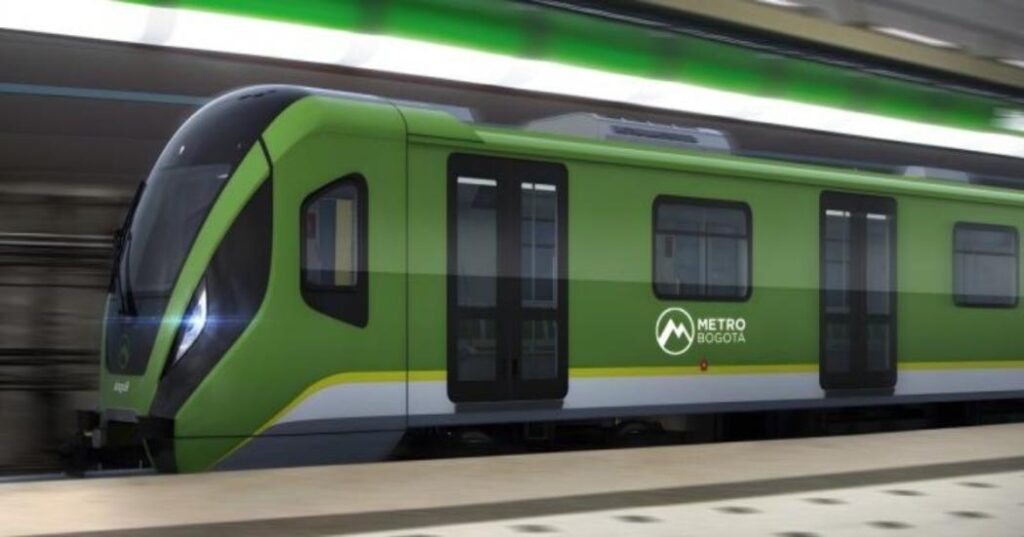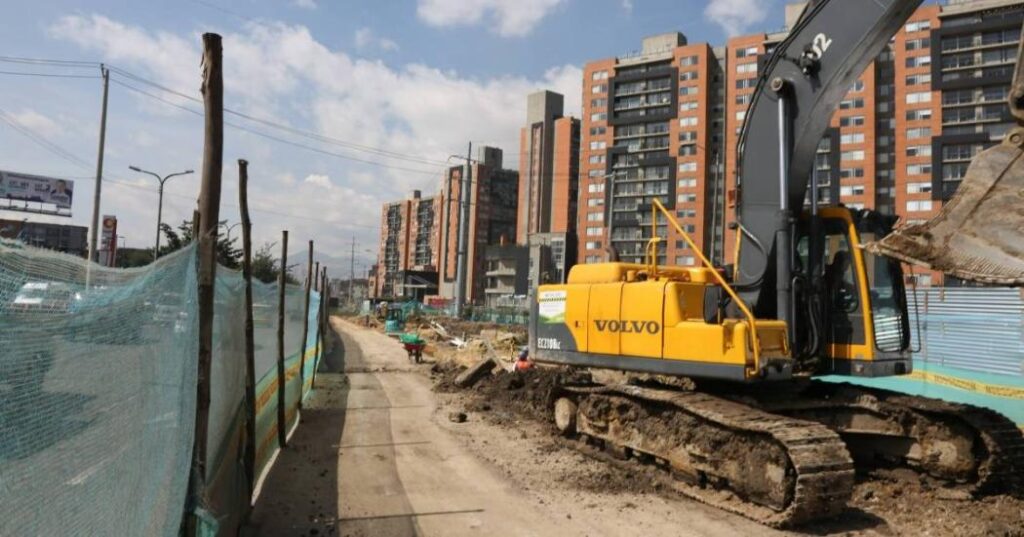As the president and mayor battle it out, the future of Bogotá’s long-awaited metro line is once again in doubt.

The weary commuters of Bogotá have been promised a transport revolution for more than 80 years. It’s much needed. The capital was rated the sixth worst city for traffic in the world in the 2022 INRIX Global Traffic Report, costing residents an estimated 122 hours a year.
Mayor Claudia López entered the alcadía in January 2020 with a promise to solve the city’s transport woes. Now she warns that the project to construct the capital’s first metro line – which is already under construction – is under threat, blaming interference from President Petro.
As tensions rise between Casa de Nariño and the mayor’s office, we attempt to unravel the latest subway squabbles.
What is the current plan for Bogotá’s metro?
Work on Bogotá’s metro began in October, 2020 after a Chinese consortium was awarded the contract for the project’s construction and maintenance in 2019. According to López, 18% of the contracted work is already complete. She says that almost all the required properties have been bought and that work around Calle 72 is already underway.
- Estimated completion date: 2028
- Estimated cost: COP$12.9 trillion
- Length: 23.9 kilometres stretching between Calle 78 with Caracas and Bosa (Portal de Américas)
- Service: Empresa Metro Bogotá claims it will connect the north and south in just 27 minutes with 16 stops along the way, ten of which will be connected to the Transmilenio
The mayor is also pushing forward with plans for a second line in the north of the city. The project which, would be fully underground, would connect Calle 72 and Fontanar del Río. The alcadía hopes to award contracts this year and start work in 2025 with an estimated end date of 2032.
The controversy: Underground? Overground?
The Bogotá district government started the year by promising that residents would see more progress on the metro this year and announced that the line would be running by 2028. But the plans are now in turmoil because Petro believes there’s a better way. The key question: underground or overground.
The spat has been brewing since last year, when reports emerged that Petro had met with the Chinese consortium in charge of construction. According to El Tiempo, the consortium then drew up new potential plans that would allow at least part of the line to run underground. The construction team presented these proposals to Petro and López last week.

But there are cost and time issues, not to mention legal concerns about changing plans part way through. Taking the line underground could mean an extra spend of COP$8-17 trillion and delay the opening of the Bogotá metro until 2035.
López pointed out that the proposals could go against the terms of the project’s contract, potentially opening the alcaldía and government up to legal threats. “It is the pockets of citizens that will end up paying for any sanction or demand for an arbitrary modification of a public contract,” she tweeted.
The Attorney General’s office echoed the mayor’s warnings, stating that the changes posed “serious risks” and could go against the principles of contractual planning. The office later scaled up its warnings, adding that the proposals could lead to “costs overruns.” It said, changes would not be within the “criteria of reasonableness, proportionality, necessity and technical justification” required.
How did we get here?
Ambitions for Bogotá’s first metro line didn’t start with López. It was first proposed by Mayor Carlos Sanz de Santamaria in 1942. A number of factors, primarily financial, meant that it wasn’t until the last decade that progress finally started.
During his stint as Bogotá’s mayor (2012 – 2015) President Petro spent much time drawing up proposals for an underground metro. In fact it was Petro who made an agreement with the then President Juan Manuel Santos that the national government would contribute 70% of the budget. But his term finished before he could realise his grand plans.
His successors, Enrique Peñalosa and López, both continued to push forward with the vision for Bogotá’s first metro line, but they favoured an overground model, much to the dismay of their predecessor.
Some think that the roots of Petro’s almost fanatical commitment to an underground metro lie in his adversarial relationship with Peñalosa and a desire to stick to his original plan. But Petro argues this is worth fighting for because it’s better for the city long term. According to El Colombiano, he thinks that putting the metro underground will minimize disruption to the traffic on the surface, and that an elevated metro lead to increased insecurity and have a negative impact on the areas underneath it. Whatever’s driving it, the president seems unlikely to back down.
So what now?
Despite legal warnings and heated Twitter exchanges, Petro is set on his underground ambitions. According to El Espectador, Transport Minister Guillermo Reyes said that if Claudia López didn’t accept the proposals, the government could stop financing for 70% of its other projects. Reyes was called to Congress this week to explain his comments – ones that the mayor labelled as “blackmail.”
Petro requested two legal opinions, one of which has already come back. He insists there are legal means for alterations to the plans despite the contract. The president says the work that’s been done on the metro so far is important, but construction hasn’t actually begun. He also organised two working groups to further analyse the possibilities of contract modification.
While Petro and Reyes insist the government is fulfilling its obligations, Claudia López has expressed outrage that the capital’s metro plans are not part of the recently unveiled National Development Plan. She tweeted, “Extraordinary! It’s the first time the National Government does not include the Bogotá metro as a strategic project in its Development Plan!”
The President has also tweeted that he will push forward a scheduled trip to China to “seek options with the [Chinese] government in relation to the metro.”
Read more: Eastern promise : Economic relations between China and Colombia
López has responded to the President’s intrusions with a defiant “Metro ya!” and 32 councillors have written an open letter pleading with the President not to delay construction. However, only the coming weeks can tell what is truly in store for Avenida Caracas and the commuters of Bogotá.





